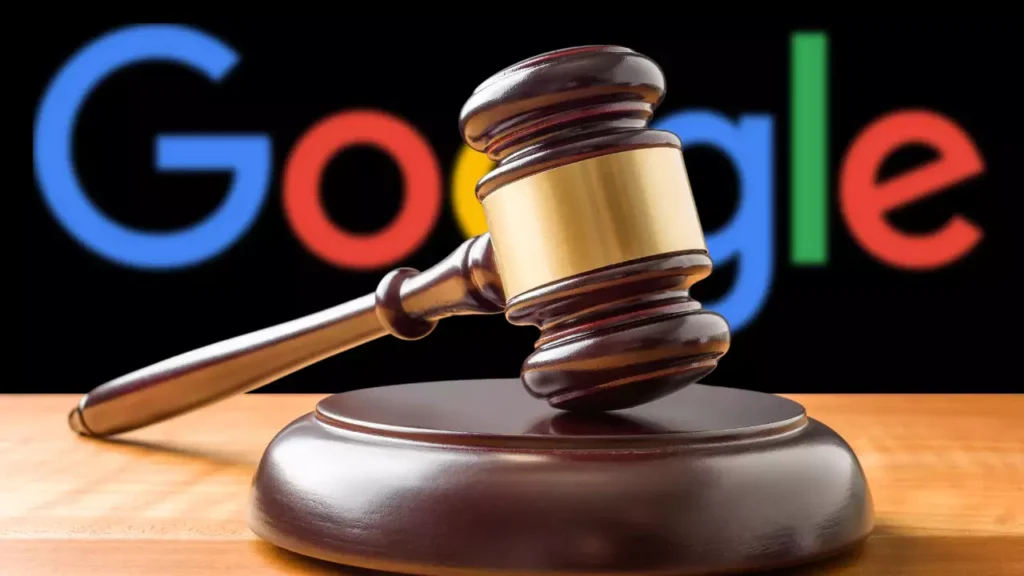
Google, the world’s dominant search engine, is now facing a massive £7 billion (around $8.8 billion) class action lawsuit in the UK. The case, which accuses the tech giant of abusing its search dominance and harming consumers, has been given the green light to proceed by the UK’s Competition Appeal Tribunal (CAT). This lawsuit is just one of many legal battles Google is currently fighting globally, as regulators ramp up scrutiny of its market practices.
As the case moves forward, it has the potential to reshape the future of search engines and online competition, posing significant risks for Google’s business model. In this article, we’ll explore what this legal challenge means for the company, its implications for consumers, and the broader tech landscape.
Allegations Against Google: Anticompetitive Practices and Consumer Harm
The lawsuit claims that Google‘s anticompetitive behavior has inflated advertising costs, passing those higher expenses onto consumers. In September 2023, Nikki Stopford argues that Google “rigged” the search-engine market by manipulating key elements of the digital ecosystem, including its partnership with Android phone manufacturers and its dominance on Apple’s Safari browser.
One of the main allegations is that Google forced Android makers to pre-install Google Search and Chrome, a practice that has already led to EU fines. It also claims the Tech Giant paid Apple billions to make it the default search engine on Safari, giving the company an unfair competitive edge.
As a result of these practices, Google is accused of inflating advertising costs for companies that use its platform, which in turn drives up prices for consumers. This lawsuit aims to hold the company accountable for these alleged practices and promote healthier competition in the digital market.
Google’s Defense and Legal Strategy
In response to the lawsuit, Google has vigorously denied the allegations. The company asked a London tribunal to dismiss the case in September, arguing that the claims were speculative and opportunistic. Paul Colpitts, Google UK’s senior counsel, stated that “People use Google because it is helpful; not because there are no alternatives.” The company argues that its practices align with its mission to provide useful services and that competition in the search engine market remains strong.
Despite objections, the UK’s Competition Appeal Tribunal (CAT) ruled unanimously in favor of allowing the case to move forward. This ruling means the lawsuit will proceed to trial, where the plaintiffs will have the opportunity to present their case in full. Google’s legal team has vowed to continue defending the company, suggesting that they will challenge the allegations at every stage of the legal process.
Global Impact: More Legal Challenges for Google
This class action lawsuit is just one of several ongoing legal battles for Google. In the United States, Google is facing a high-profile lawsuit from the Department of Justice (DOJ) over its advertising technology, which could have major repercussions for the company’s operations. Additionally, Google is also under fire for its role in the default search engine setting on Apple’s devices, an issue that recently led to a ruling against the company in the US.
Google is no stranger to antitrust scrutiny. The company recently lost an appeal in the European Union regarding a €2.7 billion (around $2.9 billion) antitrust fine related to its search practices. The combined weight of these ongoing lawsuits suggests that Google‘s search dominance may soon face tighter regulation worldwide.
What’s Next for Google?
As the UK class action lawsuit moves forward, Google could face significant financial penalties if the court finds in favor of the plaintiffs. A potential £7 billion judgment would be a huge blow to Google, For now, the company is gearing up for a long legal battle, with implications that extend beyond the UK.
The outcome of this lawsuit, along with the other legal challenges it faces globally, could ultimately force the company to make significant changes to its search and advertising practices. Whether or not this lawsuit will lead to a shift in how Google operates remains to be seen, but the stakes are higher than ever.
Conclusion
The £7 billion class action lawsuit against Google marks a significant moment in the ongoing global effort to regulate the power of tech giants. By alleging that Google has used its search dominance to manipulate advertising costs and harm consumers, this legal challenge could have far-reaching consequences for the company’s business model.
As the case progresses, it will be important to monitor the potential impact on both Google‘s operations and the broader tech industry, as well as the possible regulatory changes that may arise from the increasing scrutiny of digital market practices.



